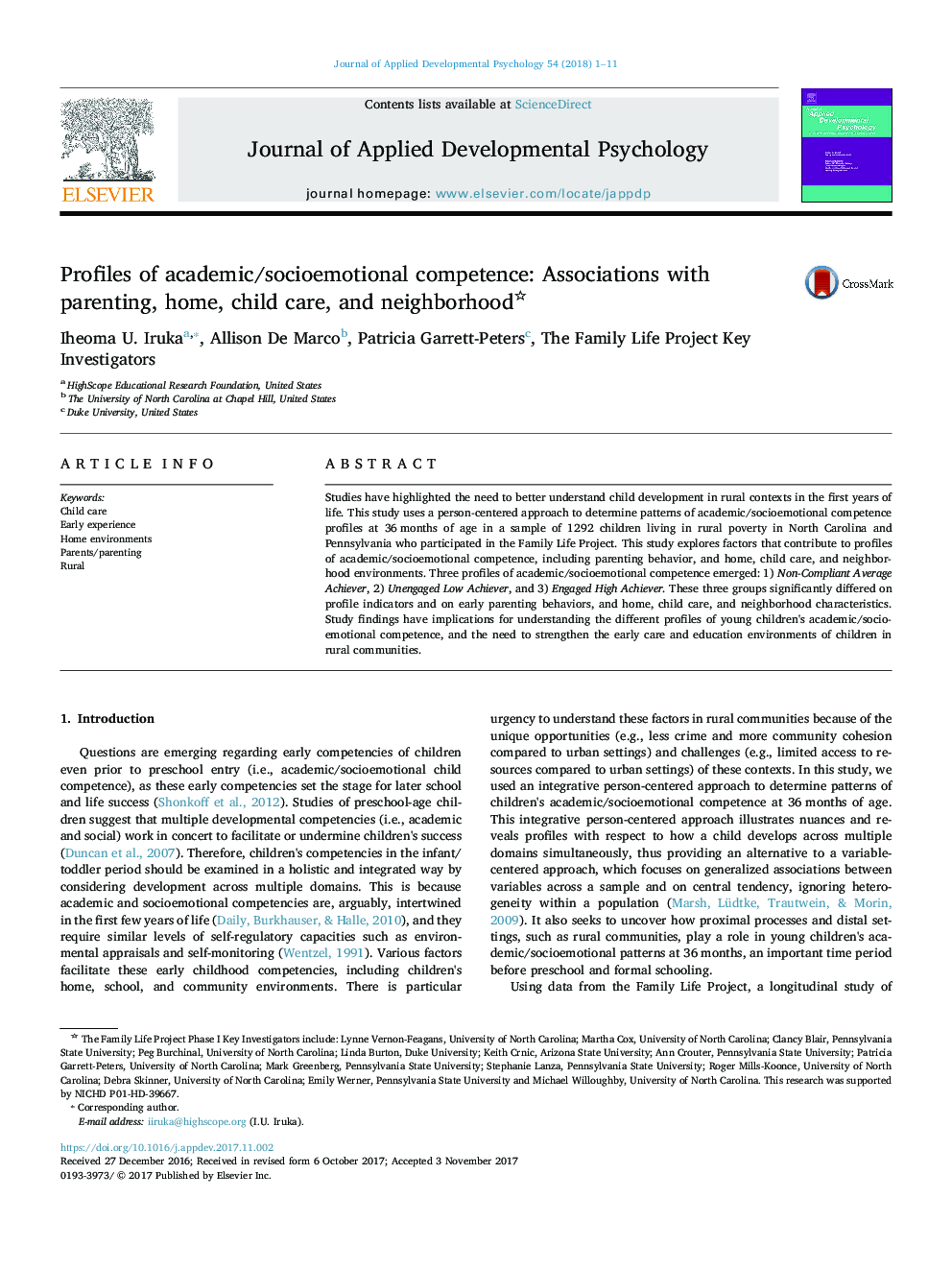| Article ID | Journal | Published Year | Pages | File Type |
|---|---|---|---|---|
| 6842804 | Journal of Applied Developmental Psychology | 2018 | 11 Pages |
Abstract
Studies have highlighted the need to better understand child development in rural contexts in the first years of life. This study uses a person-centered approach to determine patterns of academic/socioemotional competence profiles at 36Â months of age in a sample of 1292 children living in rural poverty in North Carolina and Pennsylvania who participated in the Family Life Project. This study explores factors that contribute to profiles of academic/socioemotional competence, including parenting behavior, and home, child care, and neighborhood environments. Three profiles of academic/socioemotional competence emerged: 1) Non-Compliant Average Achiever, 2) Unengaged Low Achiever, and 3) Engaged High Achiever. These three groups significantly differed on profile indicators and on early parenting behaviors, and home, child care, and neighborhood characteristics. Study findings have implications for understanding the different profiles of young children's academic/socioemotional competence, and the need to strengthen the early care and education environments of children in rural communities.
Keywords
Related Topics
Social Sciences and Humanities
Psychology
Applied Psychology
Authors
Iheoma U. Iruka, Allison De Marco, Patricia Garrett-Peters, The Family Life Project Key Investigators The Family Life Project Key Investigators,
